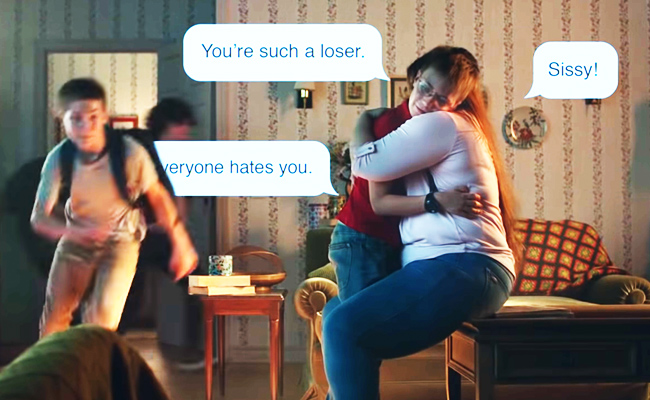
The world got a little worse the day advertisers stopped being Don Draper types impassively manipulating the public for monetary gain while drinking away their guilt, and instead became doe-eyed cultists convinced that they were actually making the world a better place. We all know advertising works, but you’re not supposed to believe it. That snapped into focus again this week with a ginned up supposed controversy over, what else, a woke razor ad.
Did you spend the week trying to avoid this entire idiotic story? You’re not alone, and you’re not wrong. In fact, I wouldn’t blame you for instantly clicking away right now.
This allegedly all started when Proctor and Gamble (the massive multinational conglomerate that owns Gillette) released a two-minute, buzz-word filled ad that could basically be boiled down to “bullying. toxic masculinity. sexual harassment. if you agree that these things are bad, buy a razor.” If you have not seen it, here you go…
(Gillette has clearly taken the Krassenstein/Seth Abramson approach — loudly shouting something obvious and demanding to be applauded for it.)
All of this is basic advertising stuff and wouldn’t be worth mentioning if not for a BIG CONTROVERSY. And so, we learned, people were pissed. News outlets from the AP to the BBC to NPR trumpeted big headlines about how this ad had stirred uproar, provoked backlash, generated controversy, destroyed feminists, and so forth. All of these stories cited random social media accounts of dubious import to support their theses. @a9ri broke down the BBC’s sources here. Meanwhile, NPR embedded in its story this pro-Gilette account of 258 followers, this alleged boycotter with 32 followers, this one with nine followers, and a handful of other no-name randos. Almost all of the stories mentioned Jessica Chastain for some reason (it’s a quirk of the internet that she and Josh Gad always seem to show up in the middle of seemingly unrelated news stories).
There’s no drawback in alleging a controversy where there isn’t one either, because all you have to do is mention a controversy enough times and enough people start to weigh in on it that it gradually becomes one. One of social media’s innovations is that your very own strawman for any argument is just a simple Google or Twitter search away. And since the majority of modern online politics consists entirely of trying to trigger each other, no sooner than we find our strawmen do we become someone else’s.
As long as we’re embedding tweets to prove our points, I think ByYourLogic put it best here:
whenever like, a toothpaste company takes on toxic masculinity I think it's cynical tryhard shit no one will take it seriously, then I see 5 verified guys named Carmine LaGun who do conservative AM radio in NYC declaring that they've bought a Howitzer because of the ad
— Lead Actor from Pixar’s Sodas (@ByYourLogic) January 15, 2019
How did this Gillette nonsense even start?
It seems to be an entirely SEO-generated phenomenon (that’s Search Engine Optimization). The ad used a series of buzzwords that were already popular in order to create a search term-dense, internet-only ad that, as of this writing, has around 17 million views.
Meanwhile, the modern news business works much the same way. Find out what’s already being discussed online and flood the internet with that content. Now that the ad has millions of views, guess what, it’s its own buzzword. Buzzwords create ad, ad becomes buzzword itself, news rushes to generate content containing new buzzword, content drives views to ad, and back around again. The marketing-SEO-industrial complex is a snake that eats itself while slowly constricting us just enough to kill a few brain cells.
In the wake of a ginned up social media event, people both thanked the ad and screamed at it, both under the mistaken assumption that brands can hear. How woke are my tampons? What do these trash can liners tell the world about me? You vote with your dollar, we constantly hear, so what brand represents you the best? Do you want the cigarette for cowboys, the cigarette for laughing society women, or the cigarette for sailors? Think hard, this decision is very important.
We’ve taken the idea that corporations are people to such an absurd degree that people with Instagram accounts now describe themselves as “brands.” Brands, in turn, seem to spend most of their ad dollars on apologies.
People learned early on that drawing a smiley face on a vacuum cleaner or whatever could give it a cute “personality,” in the same sense that putting googly eyes on a potato or eyelashes above your car’s headlights anthropomorphizes it in a way that’s ineffably pleasing to our reptilian brains. It was a fun little joke at first that we all understood, but we did it so much that we eventually believed it. Cliché evolved into unexamined truth.
Advertising has given us irony poisoning on a massive scale. It’s how we eventually evolved from a president who used Fox News as his personal propaganda arm to one who gets most of his news from Fox & Friends, the fluff morning show of his personal propaganda arm. Is it possible that we’re actually dumber than North Korea? Surely not even Kim Jong-Il actually believed he scored five holes in one on his first round of golf.
Perhaps it’s the destiny of anyone who generates hype to eventually believe it, and we seem to be living through our own fitting punishment. It’s time to get cynical before it’s too late.
Vince Mancini is on Twitter. You can find his archive of reviews here.






